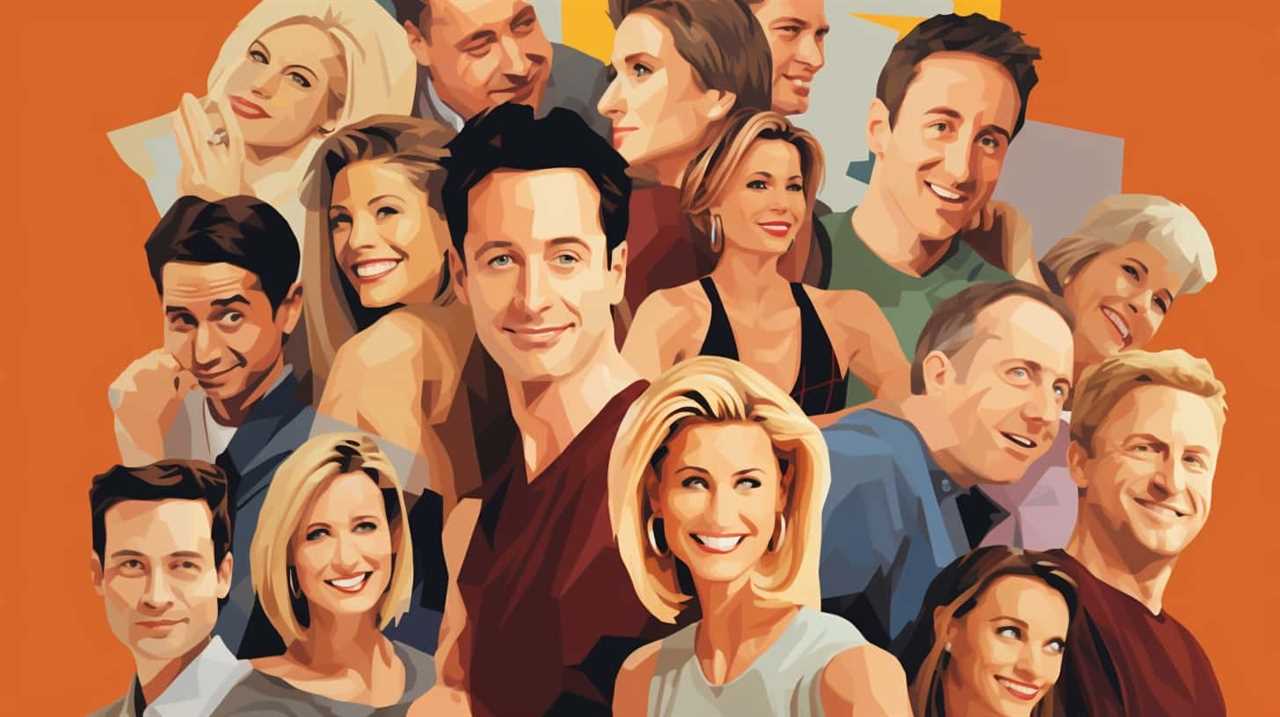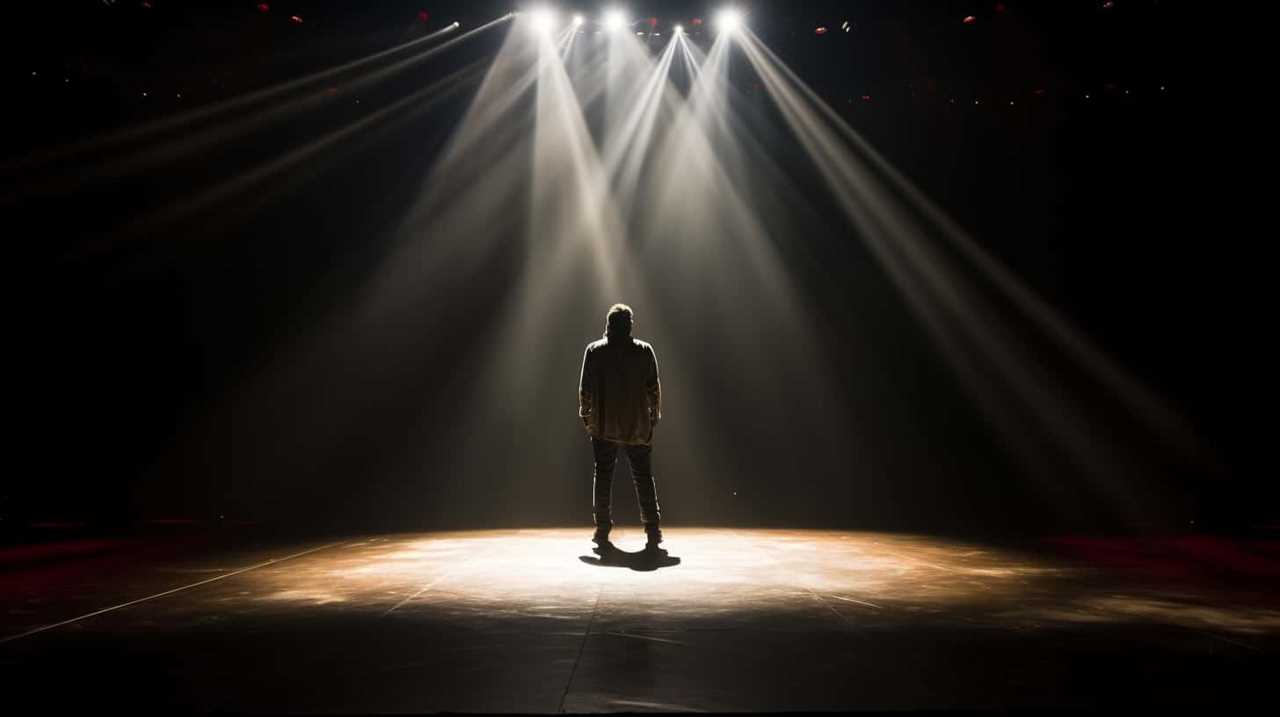Are you prepared to journey back in time? Get ready to remember some of the most memorable sitcom catchphrases that have influenced generations.
From the unforgettable ‘Yada Yada Yada’ of Seinfeld to the flirtatious ‘How You Doin’?’ from Friends, these one-liners have become ingrained in our cultural lexicon.
We all know the frustration behind a resounding ‘D’oh!’ from The Simpsons and the cheeky innocence of ‘Did I Do That?’ from Family Matters. And who could forget the classic line ‘Whatcha Talkin’ ‘Bout, Willis?’ from Diff’rent Strokes?
These catchphrases not only defined characters, but also became part of our everyday conversations. So, sit back, relax, and let’s dive into the 9 best sitcom catchphrases that have left an indelible mark on our hearts and minds.
Key Takeaways
- Seinfeld’s catchphrases ‘Yada Yada Yada’ and ‘No Soup for You!’ became deeply ingrained in popular culture and quickly became fan favorites.
- Friends’ catchphrase ‘How You Doin’?’ associated with Joey Tribbiani is instantly recognizable and adds a touch of Joey’s charisma to interactions.
- The Simpsons’ catchphrase ‘D’oh!’ uttered by Homer Simpson is widely recognized, beloved, and has permeated popular culture.
- Family Matters’ catchphrase ‘Did I Do That?’ popularized by Steve Urkel has had a lasting impact and transcended the boundaries of the show.
Yada Yada Yada" – Seinfeld
When it comes to iconic sitcom catchphrases, few can match the lasting impact of ‘Yada Yada Yada’ from the hit show Seinfeld. This three-word phrase, coined by the character George Costanza, has become deeply ingrained in popular culture and continues to be used today.
The cultural significance of this catchphrase lies in its ability to convey a sense of nonchalance, dismissal, and ambiguity all at once. It has become a go-to expression for people when they want to gloss over details or skip to the next point. The genius of ‘Yada Yada Yada’ is its versatility; it can be used humorously in casual conversations or even in serious discussions to convey a sense of indifference.
Seinfeld, known for its observational humor and witty writing, introduced this catchphrase in its eighth season and it quickly became a fan favorite. It’s a testament to the show’s influence and the enduring power of its comedic legacy.
As we transition to the next catchphrase, ‘How you doin’?’ from Friends, we move from the realm of indifference to charm and flirtation.

How You Doin’?" – Friends
‘How You Doin’?’ from Friends is a flirtatious catchphrase that has captivated audiences and become synonymous with the charming character Joey Tribbiani. This iconic line, delivered with Joey’s signature suave and confident demeanor, has had a significant cultural significance and has influenced language in various ways.
- Instant Recognition: ‘How You Doin’?’ has become instantly recognizable and is often associated with Joey’s irresistible charm. Its popularity has transcended the show itself and has become a part of popular culture.
- Flirty Conversations: The catchphrase has been embraced by fans as a playful and flirtatious greeting. It has become a go-to line for those looking to break the ice or show interest in someone.
- Linguistic Influence: ‘How You Doin’?’ has made its way into everyday conversations, serving as a light-hearted way to ask how someone is doing. It has become a fun and casual way to engage with others, adding a touch of Joey’s charisma to our interactions.
The enduring popularity of ‘How You Doin’?’ demonstrates its lasting impact on the sitcom landscape and its ability to leave a linguistic imprint. It continues to be a beloved catchphrase that defines the character of Joey Tribbiani and brings a touch of Friends’ humor and warmth into our lives.
D’oh!" – The Simpsons
Alright, fellow fans of The Simpsons, let’s talk about the iconic catchphrase that has permeated popular culture for decades: ‘D’oh!’
This simple, yet oh-so-relatable exclamation of frustration has become synonymous with the show itself, showcasing the brilliance of its writing and the enduring appeal of its characters.
From Homer’s countless mishaps to Bart’s mischievous antics, ‘D’oh!’ hasn’t only become a staple in our vocabulary but has also left a lasting cultural impact that transcends generations.
Iconic Animated Catchphrase
One of the most widely recognized and beloved catchphrases in the realm of iconic animated sitcoms is ‘D’oh!’, famously uttered by the lovable bumbling patriarch of The Simpsons. This iconic animated catchphrase has had a significant impact on the animation industry, shaping the way audiences perceive and engage with animated characters.
- ‘D’oh!’ has become synonymous with Homer Simpson, representing his endearing clumsiness and his relatable moments of frustration.
- The catchphrase has permeated popular culture, appearing in countless memes, merchandise, and even being added to the Oxford English Dictionary.
- Its simple yet versatile nature has made it a timeless catchphrase that continues to resonate with audiences of all ages.
The enduring popularity of ‘D’oh!’ showcases the power of a well-crafted catchphrase in capturing the hearts and minds of viewers, solidifying The Simpsons’ place in animation history.
Cultural Impact of Catchphrase
The cultural impact of the catchphrase ‘D’oh!’ from The Simpsons has been profound, shaping the way audiences perceive and engage with animated characters. This iconic phrase, uttered by the bumbling Homer Simpson whenever he makes a mistake, has transcended the boundaries of the show and seeped into our everyday language.
It has become a universal expression of frustration or annoyance, and has even been added to the Oxford English Dictionary. But the impact of ‘D’oh!’ goes beyond language. It has also been used in advertising, with various brands incorporating the catchphrase to connect with audiences and evoke the humor and relatability of the show.
From cereal commercials to car ads, ‘D’oh!’ has become a cultural touchstone, forever ingrained in our collective consciousness.
Did I Do That?" – Family Matters
We all remember the iconic catchphrase that Steve Urkel popularized in the sitcom Family Matters: ‘Did we do that?’ This catchphrase became ingrained in popular culture and has had a lasting impact on audiences. Let’s delve into the cultural significance and catchphrase origins of this memorable line.
- Universal Relatability: The phrase ‘Did we do that?’ resonated with viewers because it captured those moments when we all make mistakes or do something unintentionally. It became a humorous way to acknowledge our own mishaps and laugh at ourselves.
- Character Development: Steve Urkel, played by Jaleel White, was known for his clumsy and accident-prone nature. The catchphrase perfectly encapsulated his character and added to the overall comedic appeal of the show. It became synonymous with Urkel’s presence on screen.
- Pop Culture Impact: ‘Did we do that?’ transcended the boundaries of the show and became a catchphrase that people used in everyday conversations. It became a catch-all phrase to jokingly take responsibility for any mishap or blunder.
Now that we’ve explored the cultural significance and origins of the ‘Did we do that?’ catchphrase, let’s move on to another iconic sitcom line: ‘Whatcha talkin’ ’bout, Willis?’ from Diff’rent Strokes.
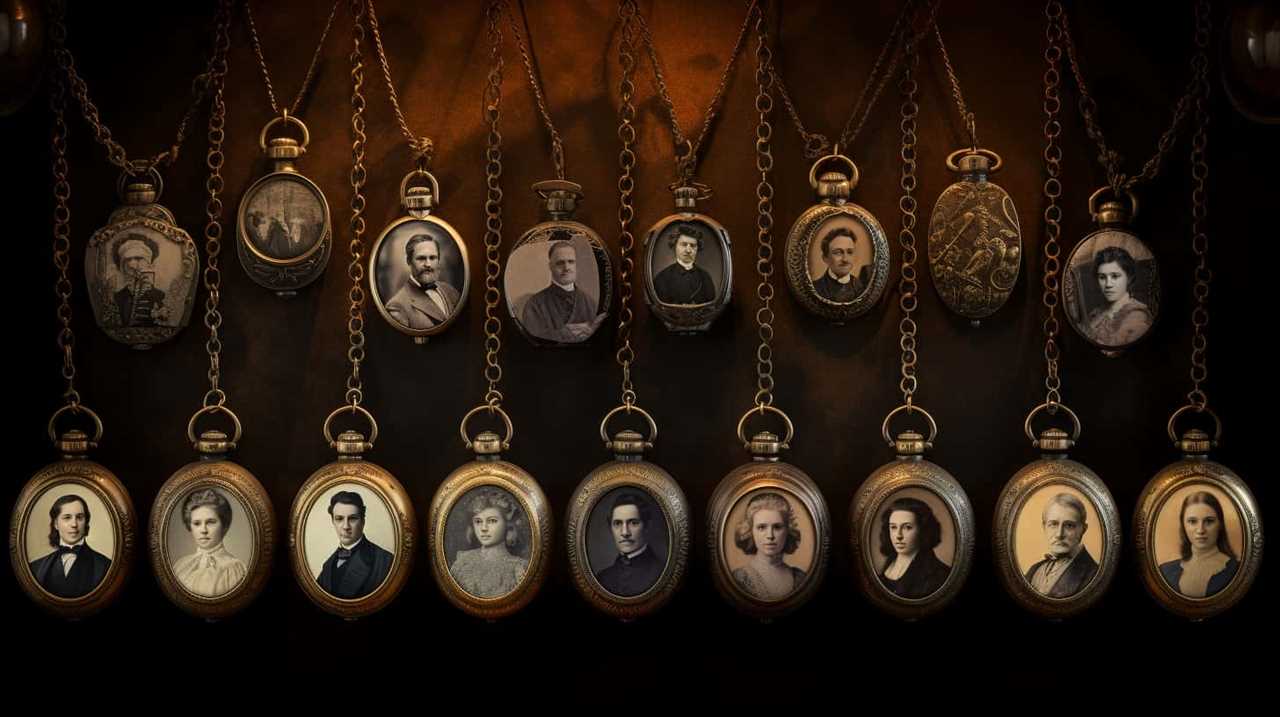
Whatcha Talkin’ ‘Bout, Willis?" – Diff’rent Strokes
Continuing from the previous subtopic, let’s now delve into another iconic sitcom catchphrase that defined generations: ‘Whatcha talkin’ ’bout, Willis?’ from Diff’rent Strokes. This catchphrase, uttered by the adorable Gary Coleman who played Arnold Jackson, became a cultural phenomenon and is still recognized today.
The phrase itself originated from an episode titled ‘The Reporter,’ where Arnold overhears his brother Willis saying something and responds with his signature line, ‘Whatcha talkin’ ’bout, Willis?’ This simple yet catchy phrase perfectly captured Arnold’s innocent and inquisitive nature, resonating with audiences around the world.
The cultural significance of this catchphrase lies in its ability to encapsulate the dynamic between the two brothers and their contrasting personalities. Arnold, the younger and more naive sibling, often relied on Willis for guidance and clarification. The catchphrase became a humorous way to highlight their unique bond and the comedic misunderstandings that ensued.
Over the course of its eight-season run, ‘Whatcha talkin’ ’bout, Willis?’ evolved into a pop culture phenomenon, transcending the confines of the show. It became a catchphrase used in everyday conversations, parodies, and even merchandise. Its enduring popularity speaks to its impact on popular culture and its ability to resonate with audiences of all ages.
Transitioning into the next subtopic, let’s explore the catchphrase that revolutionized the sitcom landscape: ‘What’s the deal with…’ – Seinfeld.
What’s the Deal With…" – Seinfeld
One of the most iconic sitcom catchphrases that defined generations is ‘What’s the deal with…’ from the groundbreaking show Seinfeld. This phrase, uttered by the show’s main character Jerry Seinfeld, became a cultural phenomenon and is still widely recognized today.
- Timeless humor: Seinfeld’s catchphrase perfectly encapsulates the show’s unique brand of observational humor. It was used to express confusion or frustration about everyday topics, like airplane food or dating. The phrase became synonymous with the show’s witty and relatable comedic style.
- Cultural significance: ‘What’s the deal with…’ not only entertained viewers but also reflected the societal quirks and absurdities of its time. The show tackled subjects that were often considered taboo, pushing the boundaries of what was acceptable on television. Seinfeld’s catchphrase became a symbol of the show’s fearless approach to exploring the minutiae of everyday life.
- Comedic timing: The delivery of ‘What’s the deal with…’ was crucial to its comedic impact. Jerry Seinfeld’s impeccable timing and deadpan delivery added an extra layer of humor to the catchphrase. It became a signature element of his stand-up comedy and helped solidify his status as one of the greatest comedians of his generation.
Seinfeld’s catchphrase continues to be referenced and imitated in popular culture, showcasing its enduring influence and cultural significance. Its comedic timing and ability to highlight the absurdities of everyday life have made it a true classic in the world of sitcom catchphrases.
I’ve Made a Huge Mistake" – Arrested Development
We all know that catchphrases have the power to become iconic and shape pop culture. One such catchphrase that has resonated with audiences is ‘I’ve made a huge mistake’ from the beloved sitcom Arrested Development.
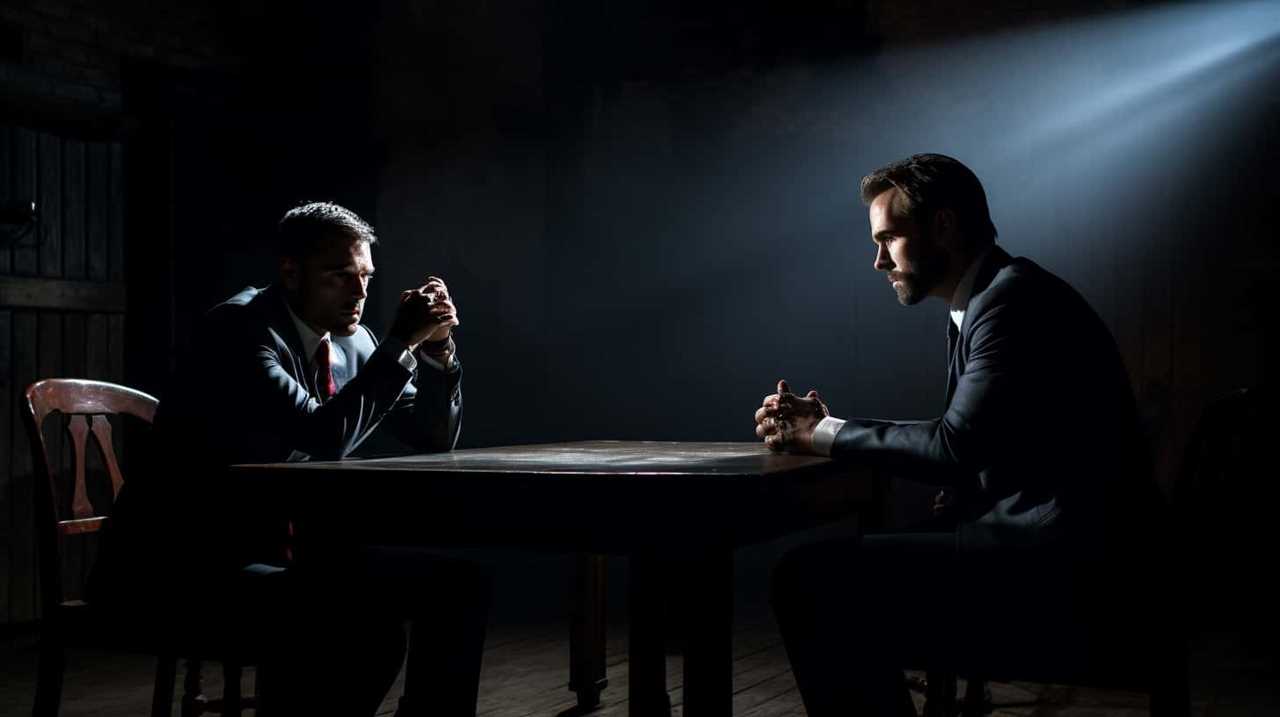
This memorable line, often uttered by the bumbling character Gob Bluth, has become a cultural touchstone, capturing the essence of regret and comedy in a single phrase. Its impact on pop culture is undeniable, with fans and even non-fans incorporating it into everyday conversations, making it a true testament to the show’s enduring legacy.
Memorable Sitcom Catchphrases
There’s a sitcom catchphrase that has become iconic and is forever etched in our memories – ‘I’ve made a huge mistake’ from Arrested Development. This simple yet hilarious phrase, uttered by the character Gob Bluth, has gained a cultural significance that goes beyond the show itself.
Here’s why:
- Memorable Impact: The catchphrase has resonated with viewers, quickly becoming a part of everyday conversations and social media interactions.
- Advertising Gold: Advertisers have cleverly capitalized on the phrase, using it to create memorable campaigns that stick in people’s minds.
- Universal Relatability: The phrase captures a universal feeling of regret and self-deprecation, making it relatable to audiences of all ages and backgrounds.
The cultural significance of this catchphrase, combined with its presence in advertising, showcases how a simple line can become a lasting part of pop culture. It’s a testament to the power of comedy and the impact it can have on our lives.
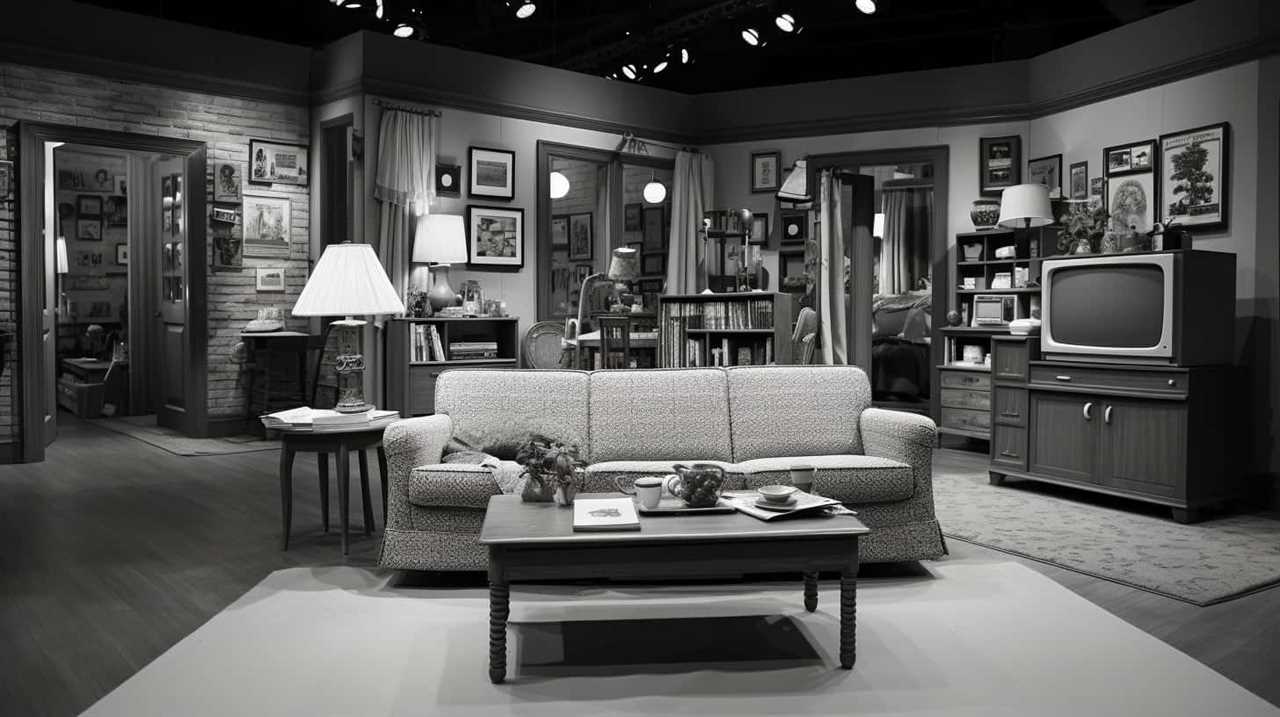
Impact on Pop Culture
The impact of the catchphrase ‘I’ve made a huge mistake’ from Arrested Development extends beyond the show itself, as it has permeated popular culture and left a lasting impression on generations. This catchphrase has gained significant cultural significance due to its relatability and comedic timing.
It has become a go-to expression for acknowledging personal blunders, making it a part of everyday conversation. From social media memes to casual conversations, this catchphrase has firmly embedded itself in the lexicon of modern society. Its lasting impact is evident in the way it continues to be referenced and quoted, even years after the show’s initial release.
‘I’ve made a huge mistake’ serves as a reminder that we all make errors, and it’s okay to laugh at ourselves. Its innovation lies in its ability to capture the essence of human fallibility while providing a lighthearted and relatable approach.
No Soup for You!" – Seinfeld
The iconic catchphrase ‘No Soup for You!’ from Seinfeld remains etched in the memories of sitcom fans. This simple yet hilarious line has had a lasting cultural significance and humor impact. Let’s dive into why this catchphrase became so popular and how it has stood the test of time.
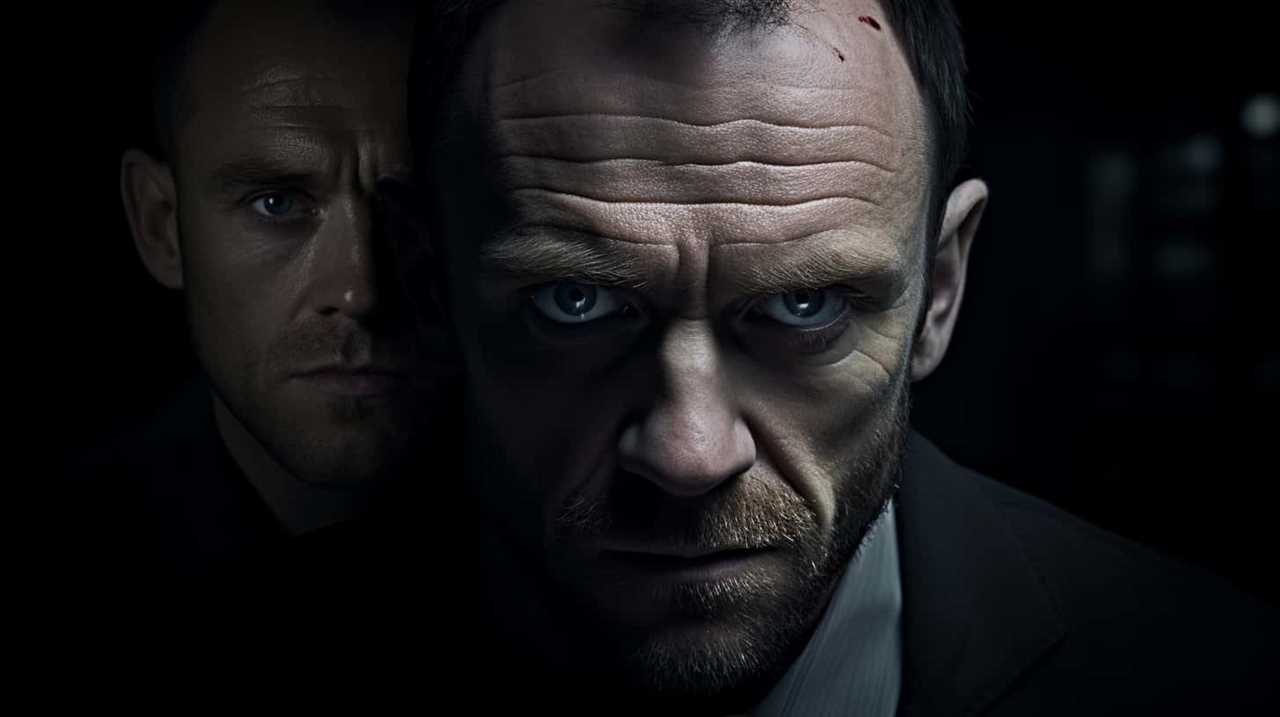
- Memorable delivery: The way actor Larry Thomas, who played the Soup Nazi, delivered the line with his stern and gruff voice instantly became a hit. The combination of his intimidating presence and the absurdity of denying someone soup created a comedic goldmine.
- Relatable situations: The Soup Nazi character represented the extreme level of strictness and rules that people often encounter in their daily lives. This relatability made the catchphrase resonate with audiences, who found humor in the exaggerated scenario.
- Catchy repetition: The repetition of the phrase throughout the show, along with the Soup Nazi’s strict demeanor, made it easily recognizable and fun to imitate. It became a catchphrase that fans could use in various situations, adding to its longevity.
Now that we’ve explored the cultural significance and humor impact of ‘No Soup for You!’ from Seinfeld, let’s move on to another catchphrase that has made its mark on television history: ‘Oh my god! They killed Kenny!’ from South Park.
Oh My God! They Killed Kenny!" – South Park
How did the catchphrase ‘Oh my god! They killed Kenny!’ from South Park become a memorable and impactful part of television history?
Well, let’s dive into the cultural significance and influence on comedy that this catchphrase has had.
South Park, created by Trey Parker and Matt Stone, burst onto the television scene in 1997 and quickly became a sensation. With its irreverent humor and biting social commentary, the show pushed boundaries like never before. And at the heart of it all was the recurring fate of poor Kenny McCormick.
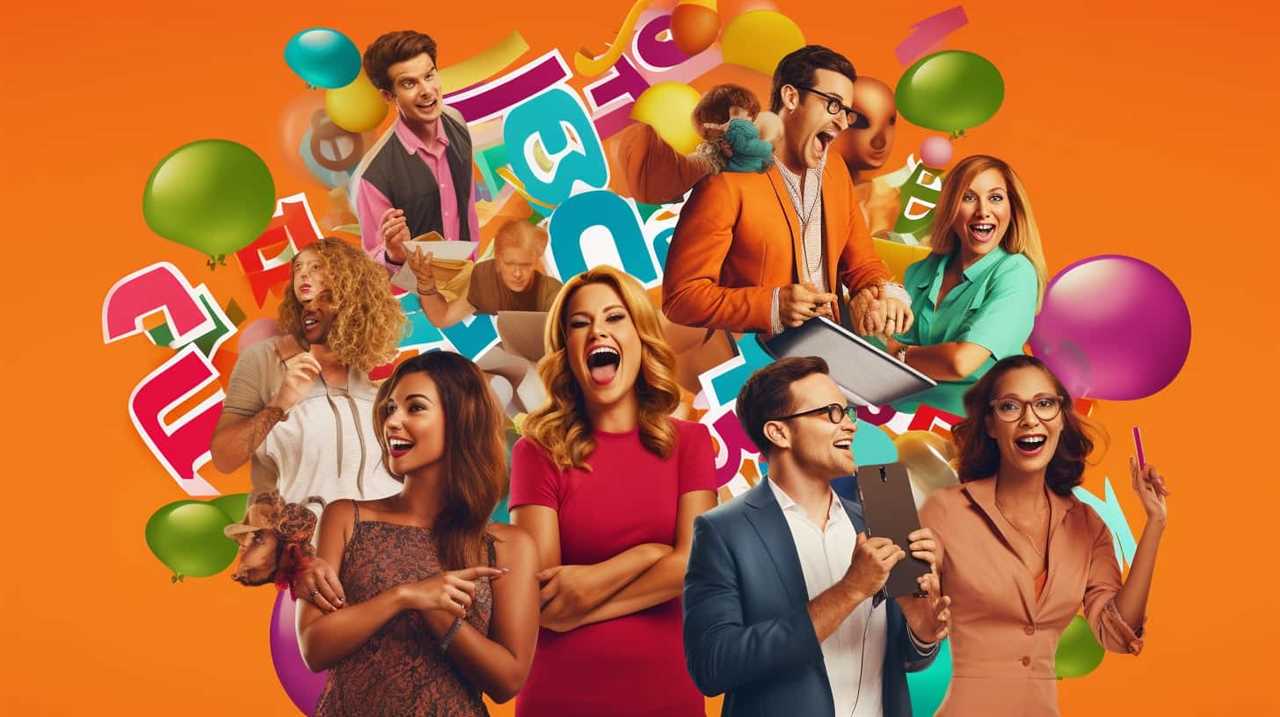
Every episode, Kenny would meet a gruesome and often hilarious end, only to return unscathed in the next installment. But it was the reaction of his friends, Stan and Kyle, that turned this running gag into a catchphrase for the ages. Their shocked and horrified exclamation of ‘Oh my god! They killed Kenny!’ became an instant hit.
What made this catchphrase so impactful was its ability to encapsulate the show’s dark humor and satirical edge. It became a rallying cry for South Park fans, a way to express their love for the show and their anticipation for each new episode. It also showcased the show’s willingness to take risks and tackle taboo subjects in a way that no other sitcom had done before.
In terms of influencing comedy, ‘Oh my god! They killed Kenny!’ set a new standard for catchphrases. It showed that a simple, memorable line could become an iconic part of a show’s identity. It paved the way for future catchphrases like ‘D’oh!’ from The Simpsons and ‘How you doin’?’ from Friends.
Frequently Asked Questions
What Are Some Other Popular Catchphrases From Sitcoms That Are Not Mentioned in the Article?
What are some catchphrases from classic sitcoms that are still used today? Catchphrases have a huge impact on the popularity of a sitcom. They become ingrained in popular culture and can define a generation.

Can You Provide Some Background Information on the Origins of the Catchphrase "Whatcha Talkin’ ‘Bout, Willis?" From Diff’rent Strokes?
Whatcha talkin’ ’bout, Willis? This iconic catchphrase from Diff’rent Strokes has become a part of pop culture. Its origin lies in the show’s character Arnold, played by Gary Coleman, who used it to express surprise or disbelief.
Are There Any Catchphrases From Sitcoms That Have Become Popular Outside of the Show?
Catchphrases from sitcoms have become iconic in popular culture and shaped the way we communicate, creating a sense of community. They influence society by providing a shared language and fostering connection.
What Are Some Memorable Catchphrases From Sitcoms That Were Not Well-Received by Audiences?
Well, some sitcom catchphrases didn’t quite hit the mark with audiences. On the other hand, there are those catchphrases that became popular outside of the show and still make us laugh today.
Can You Provide Examples of Catchphrases From Sitcoms That Have Become Part of Everyday Language or Popular Culture?
Sitcom catchphrases have revolutionized language and communication. They’ve become a part of everyday conversations and even influenced pop culture and advertising. Their impact is undeniable, shaping how we express ourselves and connecting generations through shared catchphrases.
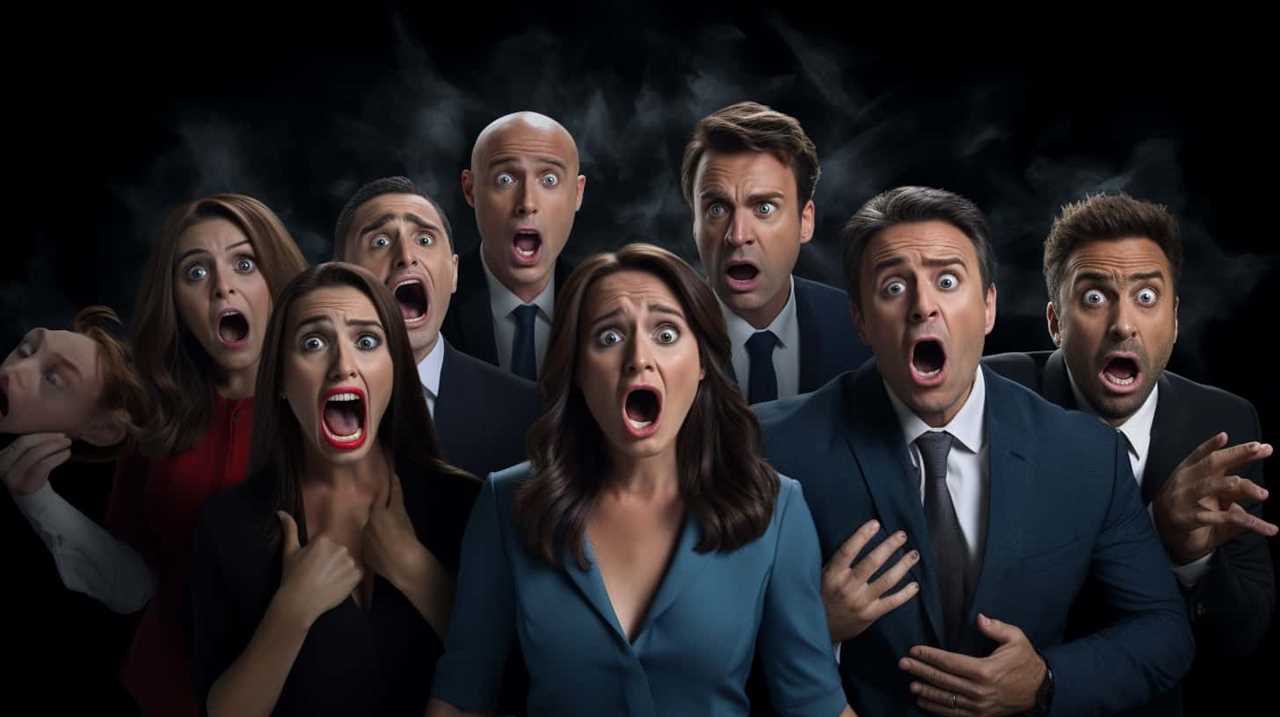
Are the Top 6 Iconic TV Catchphrases also included in the 9 Best Sitcom Catchphrases?
Yes, the top 6 iconic TV catchphrases defined generations and have gained immortality in pop culture. From “How you doin’?” to “Yada, yada, yada,” these memorable lines have left an indelible mark on sitcom history. As part of the 9 best sitcom catchphrases, they continue to resonate with audiences worldwide.
Conclusion
In a world filled with memorable catchphrases, these nine sitcom gems have truly stood the test of time.
From Seinfeld’s ‘Yada Yada Yada’ to South Park’s iconic ‘Oh My God! They Killed Kenny!’, these catchphrases have become ingrained in our pop culture lexicon.
They’ve defined generations and continue to bring laughter and joy to audiences worldwide.
So sit back, relax, and let these catchphrases transport you to a world of laughter and unforgettable moments.

Lauren’s talent in writing is matched by her passion for storytelling. Her love for books and deep understanding of culture and entertainment add a distinct flavor to her work. As our media and press contact, Lauren skillfully bridges the gap between afterQuotes and the broader media landscape, bringing our message to a wider audience.
